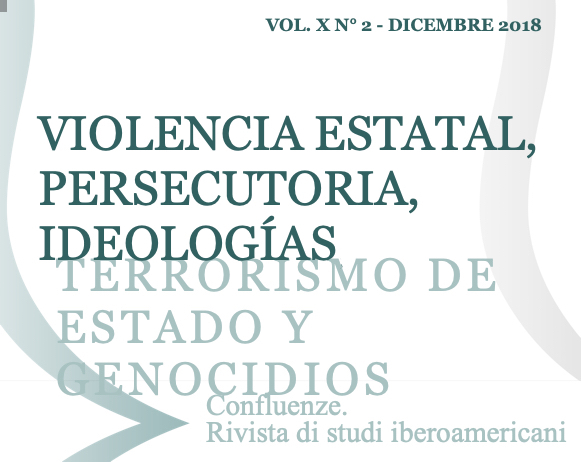Tribunais de papel. O palimpsesto do romance policial e Sempreviva
DOI:
https://doi.org/10.6092/issn.2036-0967/8887Palavras-chave:
Brazilian dictatorship, Lei de Anistia, memory, detective novel, justiceResumo
The aim of this study is to analyze the way in which detective novel as a genre shapes narratives that discuss the function of law and, therefore, the existence of a(n) (im)possible justice, when it is (not) put into existence by the institutions responsible for it. The starting point of this analysis will be Antônio Callado's novel, Sempreviva, written in 1981 during the transitional period towards democracy when the Amnesty Law, institutionalizing an official amnesia, makes it difficult to access reality and to process trauma, identifying, instead of a change, the persistence of the past into the present.
Downloads
Publicado
Como Citar
Edição
Seção
Licença
Copyright (c) 2019 Agnese Soffritti
Os direitos autorais e de publicação de todos os textos desta revista pertencem aos respectivos autores, sem restrições.
Esta revista é distribuída com a licença Creative Commons Atribuição 4.0 Internacional (código legal completa).
Veja também a nossa Open Access Policy.
Metadados
Todos os metadados do material publicado são liberados em domínio público e podem ser usados por qualquer pessoa gratuitamente. Isso inclui referências.
Os metadados, inclusive as referências, podem ser reutilizados em qualquer mídia sem permissão prévia, tanto para fins lucrativos quanto para fins não lucrativos. Solicitamos aos usuários que forneçam um link para o registro de metadados original.






